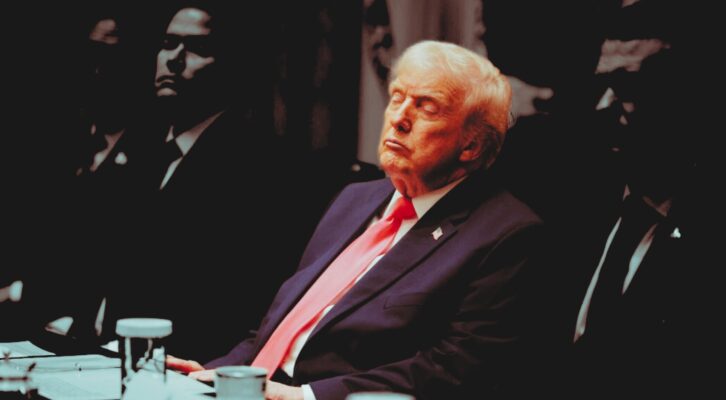I heard he got worse after I left: blocking the windows with tin foil, wearing sunglasses inside. On some level, his paranoia was justified. He was breaking the law and would eventually be caught.
But on another level such behavior was uncalled for: whatever happened, he had the resources to afford a good attorney. And he did. When he was arrested and charged with a third-degree felony for marijuana cultivation and three fifth-degree felonies, including aggravated drug possession, he was sentenced to a diversion program and given a fine. No jail time.
I was recently separated from a difficult marriage, and still felt like a stranger in the part of Ohio that would eventually become my home. Marijuana grows well here. The hot, humid climate is perfect for it, and the land is full of hollers, cliffs, and places to hide. I often describe remote, rural Appalachian Ohio to outsiders as like the Wild West, but with weed. The law has a tendency to look the other way. Or at least, it did for him.
He wasn’t lucky, he was white.
I am ashamed to say it took me time to understand this, to connect his whiteness with the way he went through the world: untouchable, untouched. It is also the way I have gone through the world, as someone who is white too.
And though things marked us as different and in some ways made things harder—I am physically disabled, I am not male—we were both raised poor and we were both protected by the color of our skin. I know my hard times would be made much harder if I were not white, as sure as I know he escaped judgement and harsher punishment because of his race.
We had met by accident, running into each other on the street. I was lonely, and in need of a friend, a good listener. He wanted more than that, and at that time in my life, I was still giving into things, going along. It seemed easier than objecting, even when I saw yellow flags, even when the yellow turned to red.
Part of the attraction was the mystery. For a long time, I didn’t know what he did. He told me he was a farmer but not what he farmed, telling me only about the garlic at first, and the tomatoes. Those I helped with, in the sun.
The pot—at one time, sixty plants—was far away, in another building on his large farm. I didn’t go in there. He didn’t let me and I didn’t want to. Once I heard about it, I didn’t want it to be real. I was kept separate from it, which helped my mind will itself into not believing.
So much of his life seemed to be fantasy, big plans that never amounted to anything. The handgun was duct-taped under the table after all, out of sight, and after we fought about it, he took it away—only to get more guns after I was gone.
He told his friends proudly that I was straight-edge, but I wasn’t. I just don’t do drugs or smoke, and for the year I knew him and tried to love him, I didn’t drink either, because he didn’t drink and I was trying to be supportive.
Trying to be supportive.
Trying to be supportive.
He made his friends who came over smoke outside. She has sensitive lungs, he said. All except for his ex, who vaped sitting in one of the metal folding chairs he had in his living room instead of furniture, staring at me.
The few nights I spent at his house I was terrified. I had difficulty sleeping, jumping at every sound. He laughed, a brand of reassurance that worked at the time, though now it seems cruel: the flippant casualness of men for whom the world has always kinda worked out.
Nobody’s gonna come, he said. You’re fine.
So what if there’s a surveillance camera, he used to say. Half of them aren’t even on, and even if he was captured on video, he said, he would have to be recognized, which wouldn’t happen.
When he was younger, he had been surveilled, picked up on a trail cam harvesting pot from some outdoor grow spot. The pictures of him and his friends had been posted by law enforcement. No one was able to identify him; I guess he looked like all men or no men. Not the kind of man the law really wanted.
One of the men he had worked with on the outdoor grow went on to become a politician. Nobody went to jail. Everybody—not a huge surprise, in rural Appalachia—was white.
***
Black people are almost 4 times as likely as white people to be arrested for pot possession, according to the ACLU. And Black people are more likely to suffer much harsher sentences when they are arrested for drugs; as The New York Times reported, Black people are more than 10 times as likely to go to prison. Many are still there, even as marijuana becomes increasingly legal across the United States.
A few months ago, in my day job as a freelance reporter, I wrote for The New York Times about cannabis edibles during the pandemic. It was a struggle to find a source of color willing to talk, understandably. It was also a frustration to me that the CEOs, founders, and heads of almost all the cannabis companies I encountered were white. Overwhelmingly, white men. Their publicists still flood my inbox, trying to get me to write about their clients, offering me samples, which is illegal.
He enjoyed breaking the law. He enjoyed being bad, sneaking around.
I am not sure even after all these years, why he did it, why he grew. It was money, but not necessarily easy money for him, a farmer in Appalachia. I know he worked hard and long, and did all the labor himself: physical labor as difficult as farming the vegetables he had pretended to me were his only crops. He disappeared for hours. He smoked pot every day and had for a very long time, he told me, since he was a child. But he enjoyed breaking the law. He enjoyed being bad, sneaking around.
I think maybe most of all what he enjoyed was not getting caught. Even by me.
Once after I was gone from his life, I saw him at a big party. It was Halloween. I was with a friend and wore a new pink dress and a mask. I spotted him just as we were leaving. He leaned on the banister of the balcony above me. He wore no mask or costume that I could see. But in a way, he always did, the mask of whiteness, of getting away with it.
Later he texted that he had been pulled over that night and he was sure lucky, he said, because he had been high on Ecstasy, and the cop just let him go with a warning, because he had been driving slow. He wrote it to me casually, like: of course he had been doing Molly, of course he had not been punished. I couldn’t believe his luck.
But of course.
I hadn’t known he took hard drugs. Had he taken them with me, and I was just too naïve, too stupid, too hopeful to notice? When he was arrested, he tried to swallow the hard drugs he had on him. The sheriff found two guns in the house: a handgun and shotgun. I felt like I would never know the extent of anything. And like most inexplicable or difficult events, I would never have closure.
He was caught because of a mistake, a coincidence: a sheriff’s deputy was investigating something unrelated down the road from the farm, then smelled pot.
But being let relatively off the hook was not a mistake at all. It’s the product of white supremacy.
***
Years later, I’m engaged to be married to a man who is Chicano. Every day I feel I have to unlearn the way I was taught to exist as a white person, which is not being taught at all. Just the assumption that everything will be fine, or not as bad as it could be. That bad things don’t happen for no reason. That people don’t treat you with violence for no reason. That, no matter what happens, you will probably be okay, survive.
But as a man of color, my fiancé was not necessarily expected to survive, let alone succeed.
I witness people treat us differently every day. Early in our relationship, we were walking down the street holding hands, and an older white man came toward us. I stiffened, my face forming into a scowl, prepared to head off any comment with a dirty look. My fiancé had the opposite reaction. He smiled, called out a loud and friendly hello.
Later we talked about it, how I had learned to fend off unwanted attention from men with aggression. He had learned to head off violence with friendliness, making the first move to disarm.
I wonder if white men ever have to make these decisions, just walking down the street. I feel guilty that I once loved someone who took such advantage of this system.
You just wanted love, my fiancé said. You just wanted things to work out.
But how we want them to be and how they are are different.
The attraction of growing pot for the man I used to know—getting away with it—is not something that anyone but he could take advantage of, even legally. Licenses for marijuana cultivation have overwhelmingly gone to white men. With only 4.3 percent of owners or stakeholders in marijuana businesses people of color, according to a 2017 study cited by NBC News, licensed cannabis businesses are majority white-owned, so much so that many states have legislation in the works meant to attempt to address social equity and the marijuana industry.
But what about plans to release the people of color already imprisoned for marijuana crimes?
***
The last time I saw him he was gardening, on his hands and knees in the earth in someone else’s front lawn, in the town where I lived. His head was down and I don’t think he saw me, or maybe I just want to believe he didn’t. I didn’t want to see him again, but I didn’t want him to see me look away either. Not wanting to be cruel, not wanting to start a scene.
Maybe he was working a job, on a landscape crew, work he told me he had done years ago and hated. But I feel in my bones that if there is still a way for him to grow illegally, to get away with it again, he is doing it now, doing it still.
I passed him and he didn’t look up. He was putting into the ground what I remember as his least favorite plant: snowball bushes.
*


















